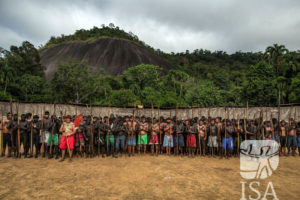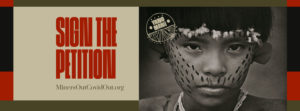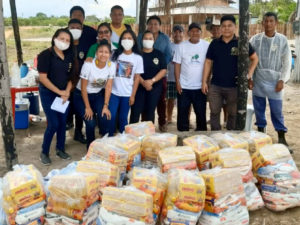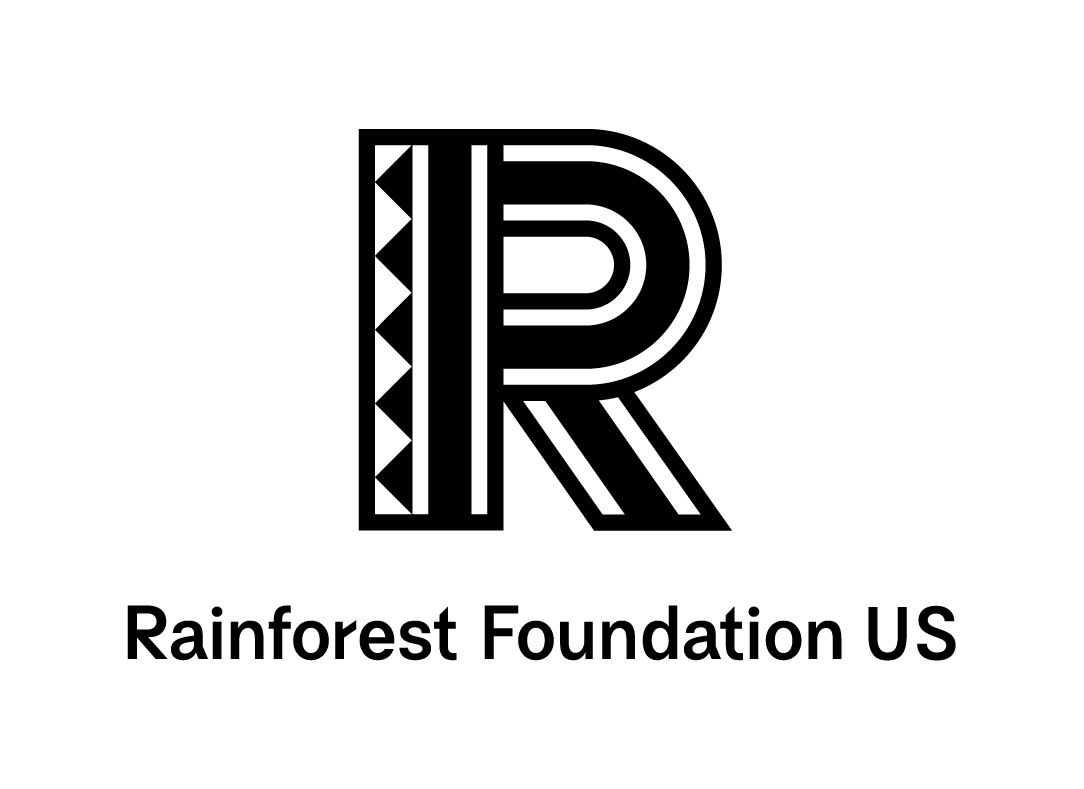“We have two sacred sites in our park. Our primary concern is that we are losing access to these sites. It is clear now that the park is run by the Chico Mendes Institute, anything we have to say will not be considered by the institute… The government is also proposing a hydroelectric dam that would affect many people—and the waterfall, which is sacred to us.” Zedoeli Alexandre, a leader from Raposa Serra do Sol explained to the Inter-American Commission on Human Rights (IACHR) of the Organization of American States (OAS) in Washington, DC.
Indigenous leaders from Raposa Serra do Sol, Brazil, presented their case at a hearing at the IACHR. In March 2004, the Indigenous Council of Roraima (CIR), communities from the Raposa Serra do Sol, and Rainforest Foundation US (RFUS) filed a petition with the IACHR. The case admitted in 2010 by IACHR centers on violations of the rights set out in the Brazilian Constitution, the American Convention on Human Rights, and Convention 169 of the International Labor Organization (ILO). While Raposa Serra do Sol (RSS) has since been demarcated as protected land, and the majority of non-indigenous occupants have been removed, a series of concerns remain.
Raposa Serra do Sol’s struggle for land rights lasted for over 30 years, during which at least 20 indigenous people were murdered. Today, 10 years after the right to their territories was legalized, communities in RSS are still waiting for many of the perpetrators of violence to be held accountable. In the meantime, communities have had their property destroyed, braved death threats, and had their schools burned down.
Christine Halvorson, Country Director at RFUS, notes, “Much must still be done, not the least of which includes the full investigation and bringing to justice of all those who perpetrated violence against the indigenous peoples in Raposa. The government must also modify its laws to ensure that no other indigenous communities will have to suffer again in this way, and be deprived of their lands and other human rights as protected in the national constitution and international law.”
During the hearing, the main issues discussed were: violence and impunity—one of the alleged perpetrators of much of the violence is now Vice-Governor of the state; uncertainty and restrictions around rights to lands and resources, stemming from decisions taken by Brazil’s highest court; the presence of outsiders in towns within the boundaries of RSS; lack of protection for the communities; and insufficient provision of culturally-appropriate services to communities.
Leaders of Raposa noted, “In the case of Raposa Serra do Sol, investigations are always delayed and the State has not adapted structure to intervene in cases of violence against indigenous peoples while violence continues against us.”
Given the potential rollback of indigenous rights taking place in Brazil today, the RSS case is particularly important. Indeed, as the hearing took place, the Brazilian congress was set to debate proposed legislation that would transfer the power to demarcate indigenous lands to itself—a serious concern, since the agribusiness lobby has a strong hold on congress. The proposed constitutional amendment could also incorporate limitations to indigenous rights found in the 19 conditions attached to the Brazilian court rulings on Raposa Serra do Sol. One of these limitations would prevent existing indigenous lands from being expanded—an issue of life or death for the Guarani Kaiowa, whose ancestral lands are now tiny islands in a sea of soy and cattle. Indeed, Guarani Kaiowa representatives spoke movingly about their situation at a hearing at the IACHR about violence on indigenous lands in Brazil earlier in the day.





